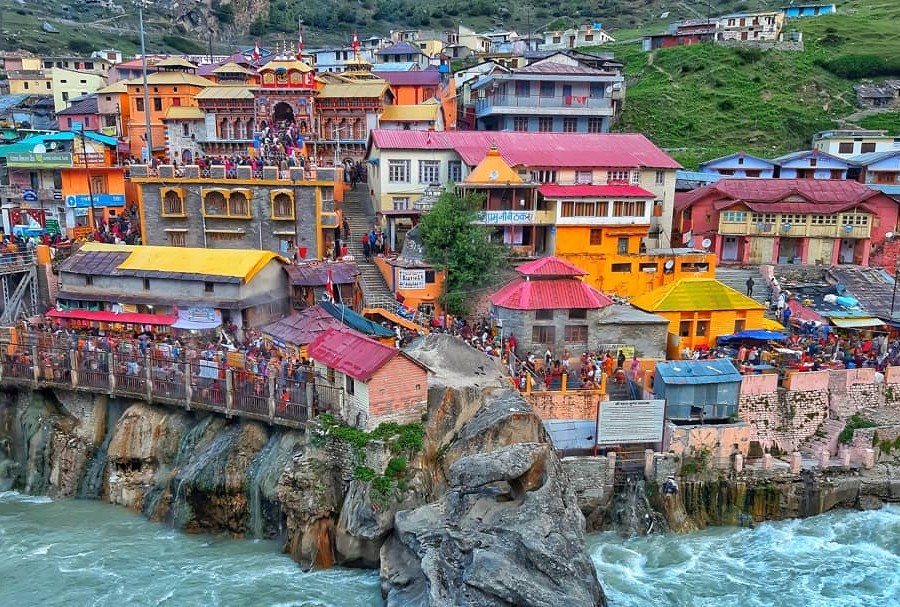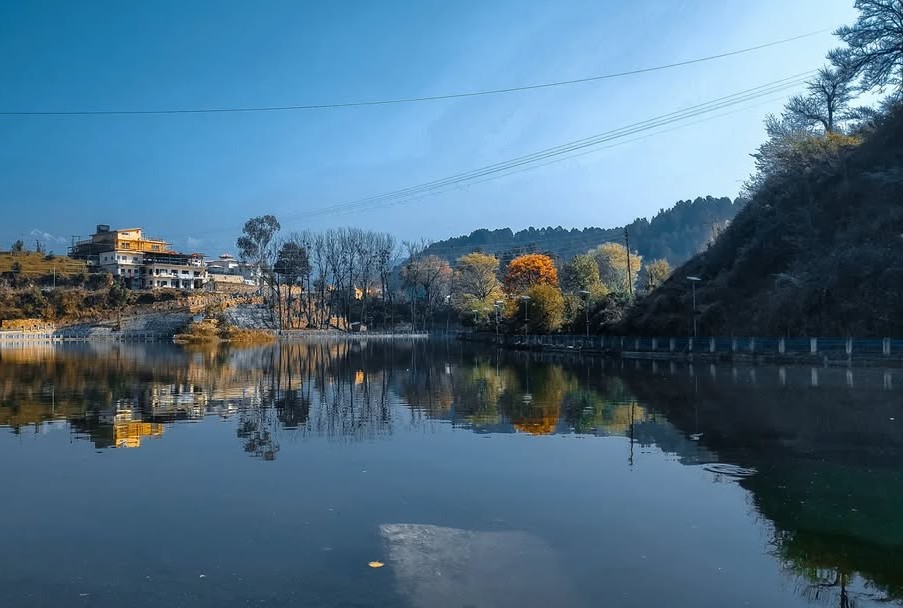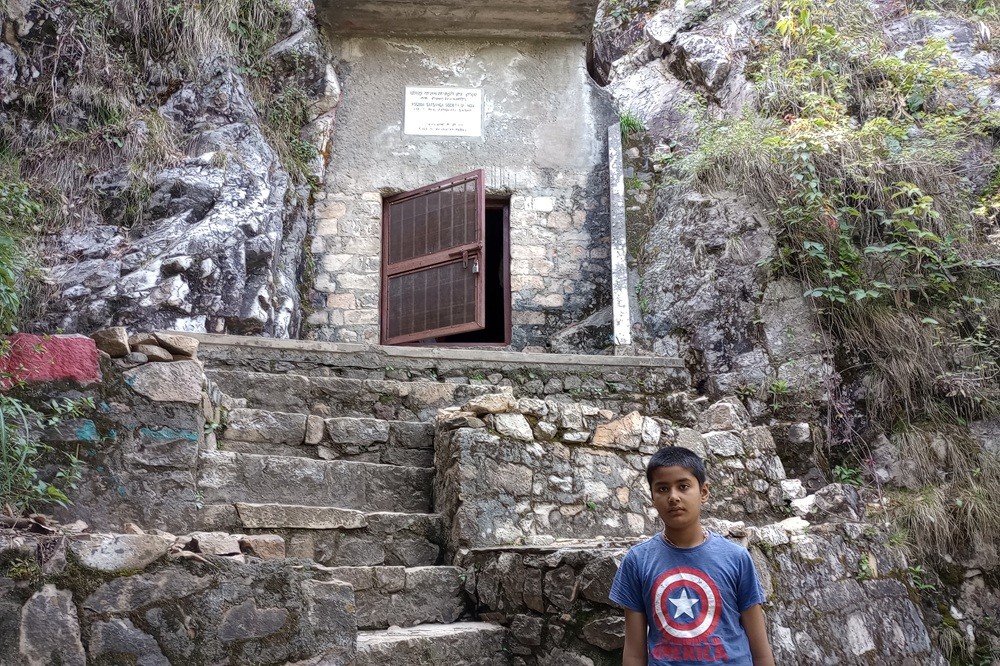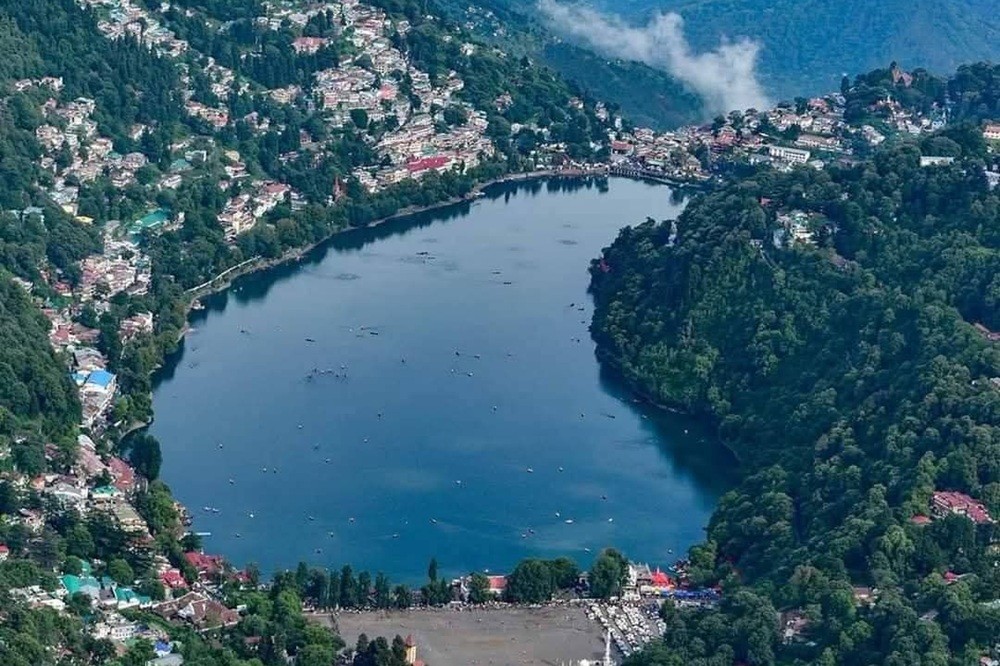Follow Footprint of Mahavatar Babaji in the Himalayas, India
Footprint of Mahavatar Babaji– offer you the birthplace of Kriya Yoga – the cave of Mahavatar Babaji & Sri Badrinath Temple visit. We’ll also be visiting other sacred places in Uttarakhand, including a trip to Kausani , Gwaldam and Almora town along with immersing ourselves in nature – the river Ganga to the Himalayan Mountains, Mana Village, and Mahavatar Babaji Cave are all part of our intriguing itinerary.
Overview: Footprint of Mahavatar Babaji
highlights include the connection between Mahavatar Babaji and Jesus, narrates you Mahavatar Babaji stories, Neem Karoli Baba Ashram, Nainital & the tour helps you to live the Babaji Kriya Yoga, to learn Kriya Yoga technique, brings you the Mahavatar Babaji in the heart and enfolds you in a beautiful way explaining through Mantra and Mahavatar Babaji quotes.
Mahavatar Babaji was an Indian saint.
He was somebody who was very highly revered by Lahiri Mahasaya, Yogananda, and Sri Yukteswar Giri amongst others. Some accounts featuring Mahavatar Babaji include his meeting with Paramahansa Yogananda in which he imparted knowledge upon him and then disappeared.
Projected Itinerary
DAY 1: Rishikesh – Rudraprayag 140 km
After a hearty breakfast at our hotel, we will head out to northern India to the beautiful town of Rudraprayag which is nestled between two rivers, another drop-in point on our journey through the picturesque Himalayan lands.
En route, we will pass by the powerful Vashishta Gufa cave nearby where generations of monks have gathered to meditate and seek enlightenment. Of course, there’s no way we would pass up a side trip to one of the oldest temples in Rudraprayag, dedicated to Manaknathji as he presides over his dual roles as both *** of preservation and *** of destruction!
We will also take time out to visit the Devprayag Sangam, a confluence where two mountain streams (Alaknanda and Bhagitathi) meet up with the legendary goddess Ganges. Overnight: Rudraprayag.

DAY 2 : Rudraprayag – Badrinath 160 km
On day one, start off with a visit to Nandprayag Sangam, Karnprayag Sangam, Vishnuprayag Sangam, Joshimath and Govind Ghat & Pandukeshwar. Check-in at Hotel after the trip from 7500 feet above sea level. In the evening, proceed for a visit to the main Shrine of Sri Badrinarayan Temple. The temple is devoted to Badrinarayan, one of the forms of Vishnu.
You can also visit Veda Vyasa Cave and Sri Ganesha Caves after visiting Badri Narayan Temple as per time availability. Stay overnight at Hotel near Sri Badarinath Temple.
DAY 3 : Badrinath – Gwaldam 180km
After breakfast, travel to Gwaldam. On the way, visit one of four ancient Hindu temples dedicated to Lord Vishnu that are found in the space of two miles on Joshimath ridge, which is at an elevation of about 2000 meters.
The Joshimath temple is approximately 1500 years old and was visited by Adi Shankaracharya the Hindu religious leader in 800 AD. In the evening, arrive at Gwaldam – a charming hill station with a couple of ancient Buddhist temples as well as several historic Hindu temples. Overnight in Gwaldam at a hotel.

DAY 4 : Gwaldam – Kausani 40 km
Wake up to a morning breakfast and check out. On the way to Kausani, stop in Bageshwar where you can visit the 1000-year-old Gandaki River that’s referred to as The Ganges of the North and serves as a center for worship for locals and tourists alike.
From here, continue on to Kausani, where you can visit Anasakthi Ashram – an eco-friendly resort nestled in the Himalayas that Gandhi once deemed “Kausani, what you call Mini Switzerland of India”. Once there, explore Gandhi ashram Anashakti Ashram which he used to call “Kausani” as a Mini Switzerland of India, one of the most beautiful scenic hill stations of India. The evening awaits Overnight.

DAY 5 : Kausani – Babaji Cave 60 km
Morning Breakfast, proceed to Mahavatar Babaji cave via Dwarahat & Kukuchina, upon arrival at the small hamlet which is called Kukuchina, have a light snack & continue onward following the 2 km off-road section that leads to a 3 km trek up to the Mahavatar Babaji cave.
After visiting the cave, hikers can choose to either follow the trekking trail back down to their vehicles in Dwarahat or return via the path by which they came up. You will also visit the meditation hut of YSS along with an old temple called Dunagiri Mata Mandir as well as a few others related to Badrinath and Gujjar Devi Temple.

DAY 6 : Kausani – Naintial 115 km
Upon waking up in the morning, you will be greeted by soft sunlight caressing your face as you enjoy a fresh breakfast prepared for you at the hotel. While feeling refreshed and energized, check out and head to Nainital, one of the most naturally beautiful hill stations in India.
Traveling onwards, you will stop in Jageshwar to visit an ancient group of temples dedicated to Lord Shiva (note: don’t forget to pack some sweets for the monkeys!). Next, we’ll visit Kainchi Dham, where Mahatma Gandhi himself has stayed on multiple occasions; it is also where Steve Jobs and Mark Zuckerberg both visited! All this while on the way to your hotel.
DAY 7: Nainital – New Delhi 300 km
Breakfast at Hotel. Visit Nainital hill station, home to popular sights such as Naina Devi Mandir, Bhimtal lake, and more! We’d check out of the hotel for our trip back to Delhi (New Delhi Shatabdi Express – 12039)- Departure, 15:35/ Arrival, 21:10 ). If we choose, we can enjoy a drive on the ground way to New Delhi, which will take around 7 hours.
Footprint of Mahavatar Babaji Footprint of Mahavatar Babaji Footprint of Mahavatar Babaji Footprint of Mahavatar Babaji Footprint of Mahavatar Babaji Footprint of Mahavatar Babaji Footprint of Mahavatar Babaji Footprint of Mahavatar Babaji Footprint of Mahavatar Babaji
